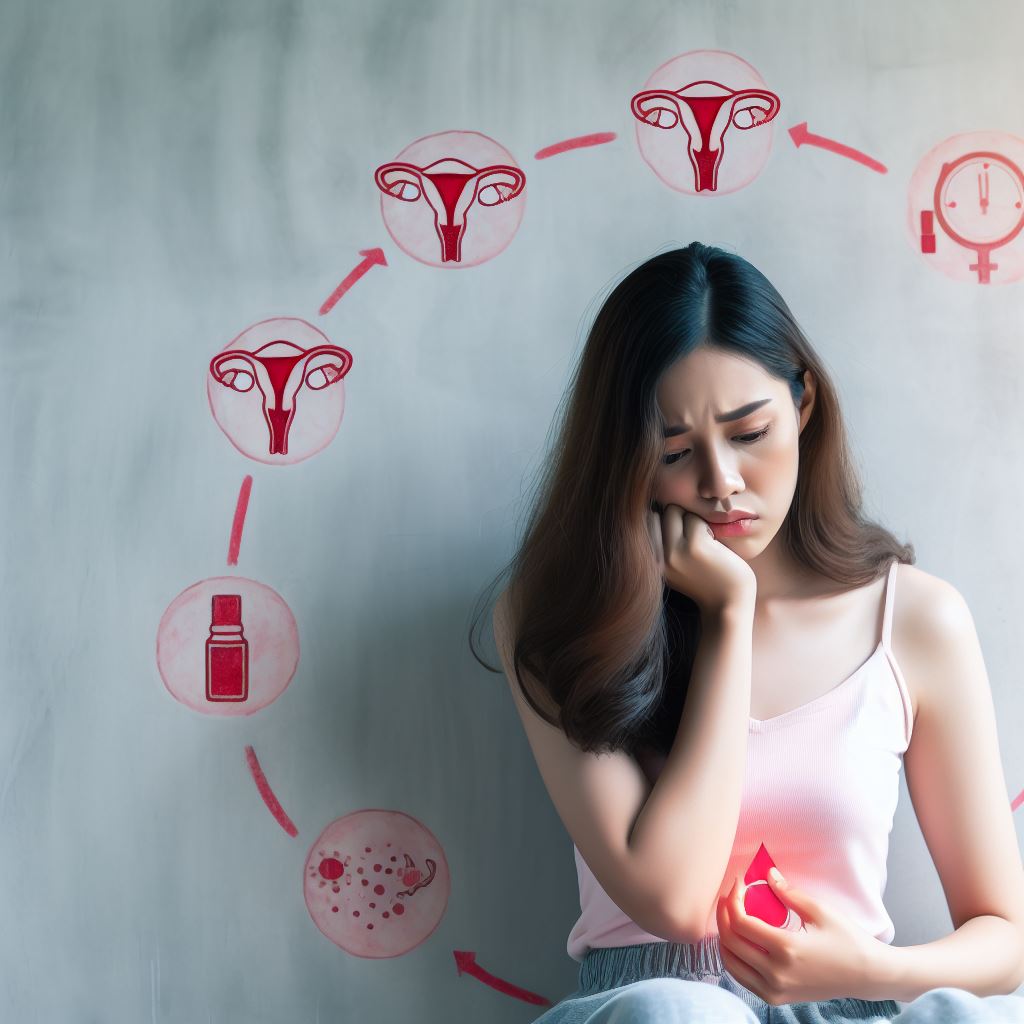The menstrual cycle is a biological reality that each woman experiences differently. In addition to the well-known physical symptoms, there are also psychological effects that can affect women’s emotional well-being.
In this article, we will explore the often overlooked connection between the menstrual cycle and depression, highlighting cause and effect relationships.
The role of hormones in the menstrual cycle:
To understand the link between the menstrual cycle and depression, it is essential to know the role of hormones. At the start of the cycle, estrogen increases, which promotes a feeling of well-being. However, during the later phase, a sharp drop in estrogen and increase in progesterone can cause premenstrual depression in some women.
Premenstrual Depression:
Premenstrual depression is an often underdiagnosed condition that affects many women. Symptoms include depressed mood, anxiety, decreased energy and self-esteem, changes in appetite and sleep. These symptoms occur about a week before your period and can persist until it starts, significantly affecting your quality of life.
Risk Factors:
Several risk factors may increase the risk of premenstrual depression. A family history of depression, hormonal disorders, chronic stress, past trauma, and chemical imbalances in the brain are all factors that can exacerbate menstruation-related depressive symptoms.
The impact of stress:
Many women experience increased stress on a daily basis, whether due to work, family or personal pressures. Chronic stress can negatively affect the hormonal system, disrupting the menstrual cycle and increasing vulnerability to premenstrual depression.
The role of neurotransmitters:
Another key link between the menstrual cycle and depression involves changes in the levels of neurotransmitters, such as serotonin, dopamine, and norepinephrine.
These chemicals play a crucial role in controlling mood and can become imbalanced during different phases of the menstrual cycle, leading to depressive symptoms.
Management Strategies:
Fortunately, there are several management strategies to relieve the symptoms of premenstrual depression. Regular exercise, a healthy diet, relaxation, meditation, and avoiding stress triggers can provide significant relief. In some cases, hormone therapy or specific medical treatments may be necessary.
Conclusion:
Although the link between menstruation and depression may seem complex, recognizing this cause-and-effect relationship is essential to better understand and treat depressive symptoms in women. By helping women recognize and manage premenstrual depression, we can help improve their quality of life and emotional well-being throughout the menstrual cycle.

